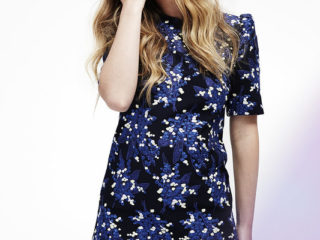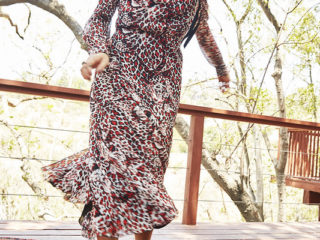I think my aversion to change began when I was 17 years old. Before that age, I had everything under control or at least I felt like I did. I had a carefully thought-out roadmap for my life. If I just followed it and executed it, then I would arrive at my destination as planned—such understandably naïve thinking for a small town girl with big dreams.
I remember sitting in my antique bedroom whose walls knew every daydream and nightmare the summer before college held. As sounds from the “Number One Station for Hip Hop and R&B” played in the background, my mind over-thought my plan for the next four years, only to be interrupted by the unmistakable rasp of Lyfe Jennings’s voice on the radio.
“There’s only two things in life that are constant. That’s change and change.”
I immediately turned off the radio.
The song itself, titled “Never Never Land,” is actually about a man who finally embraces a mature love, but whatever. I didn’t care. That line triggered me, for whatever reason, and I’d heard enough. Perhaps, this natural reaction foreshadowed what was to come for me: a decade (and then some) worth of running from seasons of change.
Before my mom died, I saw change as a series of manageable events that didn’t necessarily have to change the life trajectory of my life. I could control the effects and consequences of change. It was a selfish lens to view life through, but it worked at the time.
At 18, my mom’s death introduced me to my first real season of change. I couldn’t control this—not the pain, not the way I experienced grief, nor the time it would take me to accept the reality that I would never see her or hear her voice again.
I couldn’t control this—not the pain, not the way I experienced grief, nor the time it would take me to accept the reality…
No matter how hard I tried, I couldn’t control this. So, I ran. I pretended she was on an island with no access to mobile devices. When I felt called to rise to a challenge that I thought I wasn’t ready for, I ran in the opposite direction. When my mental health began to decline, I ran to the arms of the wrong people and to spaces that didn’t serve me.
Eventually, my legs began to give. I had to ask myself, what good did running actually do? It offered a false sense of control, prolonged the inevitable pain that comes with healing and created unhealthy coping mechanisms. Running was fear disguised as control. At 29, faced with a new season of change characterized by loss and new beginnings, I decided to try something new.
What good did running actually do? Running was fear disguised as control.
I paused. I felt. I listened. I moved with the current of change instead of fighting against it. I released control and opened myself to the effects of growth, pain and the joy of embracing change. At this very moment, I sit in a new bedroom, whose walls know my new nightmares and evolved daydreams, staring 30 right in her eyes and daring her to ask me that question. The one that I’ve avoided answering for all of my 20s.
How do you navigate seasons of change?
Now, I know that I don’t. But I’m human. So, I’ll say that I try my hardest not to navigate change.
By definition, to navigate means “to operate or control the course of.” As hard as you may try—and believe me, I’ve tried—you cannot control seasons of change nor the residual effects. Not even the most carefully thought-out plan can equip you for where a season of change takes you mentally, physically and emotionally.
You cannot control seasons of change nor the residual effects.
There is no right or wrong way to move through seasons of change. No one has the blueprint. We’re all figuring it out as we go, and what works for me may or may not work for you. However, trust yourself and the timing of your life. Let that be your guide.
How have you learned to navigate seasons of change? How has running from change impacted you in the past?
Image via Judith Pavón Sayrach











